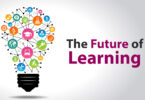The education sector in Pakistan is undergoing significant reforms and strategic shifts aimed at improving the quality of education, making it more accessible, and integrating advanced technologies into learning environments. These changes, from updated curricula to financial investments in infrastructure, reflect a clear vision for a more inclusive, innovative, and future-ready educational system.
As we explore the key highlights and reforms shaping education sector news today, it’s evident that the country is on the path toward building a modernized education system that meets the demands of the 21st century.
1. Nationwide Uniform Examination Schedule Announced

One of the most significant updates in Education Sector News Today is the Inter Boards Coordination Commission (IBCC) announcing a nationwide standardized examination schedule that will begin in 2025. This decision will streamline the academic calendars across the country, creating a uniform schedule for all educational boards. Key points of this reform include:
- Matric Exams: These will now take place in March each year, which is expected to help students prepare with a consistent timeframe.
- Intermediate Exams: Scheduled for April, the intermediate exams will follow the same timeline, allowing universities to manage admissions more efficiently.
- Results: Results will be announced by June/July, providing students and institutions ample time to plan the next academic year.
This uniform examination schedule addresses long-standing issues such as delayed results, especially when extreme weather conditions impacted exam schedules in the past. By synchronizing the exams, the education system will not only make admissions more predictable but also help students and teachers manage their time and resources better.
You may also like to read this:
Breaking News In Education: AI, Hybrid Learning & More
Top 2025 Trends: Latest Educational News Updates
Latest Education Updates – What’s Changing In 2025
Latest Education Policy And Reforms News: Key Global Updates
Current News In Education: What Changed In 2025
2. Punjab Reforms Academic Calendar and Curriculum
Another significant development in Education Sector News Today comes from Punjab, where the provincial government has made several important changes to the academic calendar and curriculum. These updates are aimed at improving educational quality and providing a more thorough academic experience for students:
- Academic Year Start: The 2025-26 academic year will commence on April 1, 2025, a shift from the previous start dates. This aims to give schools more time to adjust after the winter break and better align with international academic calendars.
- Annual Exams: The exams for the 2024-25 academic year will begin on March 10, 2025. This early timing ensures the education system stays on track and does not interfere with summer vacation schedules.
- Curriculum Changes: The most notable change in the curriculum is the increase in marks for Islamic Studies and Pakistan Studies, which will now have a total of 100 marks instead of 50. This adjustment will give students a deeper and more detailed understanding of these core subjects.
These reforms reflect Punjab’s desire to implement a more comprehensive and evaluative education system that challenges students and prepares them for a rapidly evolving world.
3. Digital Education Drives in Punjab Schools
In line with the Education Sector News Today, one of the most transformative initiatives is the introduction of artificial intelligence (AI) and digital learning tools in Punjab’s schools. This initiative is in collaboration with Google for Education and Tech Valley and aims to enhance learning through technology:
- Digital Student IDs: Approximately 200,000 students in Punjab will receive Digital Student IDs linked to AI-driven learning tools. These IDs will give students access to personalized learning experiences, making education more tailored to their needs.
- Digital Safar Program: The “Digital Safar” program will focus on internet safety, skill building, and basic coding. These skills are essential for students to navigate the digital world safely and effectively, providing them with an edge in the increasingly tech-dependent job market.
By integrating digital education tools and AI into the classroom, Punjab is taking significant steps toward bridging the digital divide and ensuring students are equipped with the skills necessary for the future.
4. Sindh Launches IT Education for Youth
In another remarkable development in Education Sector News Today, the Sindh provincial government has launched a major initiative to provide free IT training to 500,000 youth. The program will initially focus on Karachi and then expand to other regions, including Hyderabad, Sukkur, Larkana, and more. The initiative aims to:
- Boost Digital Literacy: By equipping young people with IT skills, the program aims to create a digitally literate workforce ready for the global economy.
- Increase Employment Readiness: With a focus on skill development, this program is expected to improve the employability of thousands of youth across the province, opening doors to better job opportunities.
This effort is a part of Sindh’s broader strategy to empower the youth, reduce unemployment, and ensure that the next generation is prepared for the demands of the digital age.
5. Historic Boost in Federal Education Budget

A major financial update in Education Sector News Today is the federal government’s decision to increase the education sector’s budget for 2024-25. The total allocation is Rs 20.25 billion, a significant increase compared to previous years. This funding boost includes:
- Rs 65 billion for Higher Education: The Higher Education Commission (HEC), which oversees university-level education, has seen its budget restored, ensuring that universities can continue to develop faculty, infrastructure, and academic programs.
- Focus on Higher Education Expansion: A portion of the budget will be directed towards expanding access to higher education, particularly in underdeveloped areas, to ensure all students have the opportunity to pursue advanced studies.
This increase in funding signals the government’s renewed commitment to fostering educational development and enhancing youth empowerment across Pakistan.
6. New Scholarship Programs for Tourism and Hospitality
In a notable development for Education Sector News Today, the NEST-PEEF has introduced new scholarships specifically for students pursuing careers in tourism and hospitality management. The scholarships aim to:
- Support National Growth: These scholarships align with the government’s broader efforts to grow Pakistan’s tourism industry and capitalize on its potential.
- Develop Skilled Workforce: By offering financial support to students in these fields, the program helps nurture a skilled workforce that will contribute to the growth of the tourism and hospitality sectors.
These scholarships are a great example of how targeted financial aid programs can address skills shortages in specific industries.
7. National Policy for Out-of-School Children (OOSC)
One of the most pressing challenges in Education Sector News Today is the issue of out-of-school children (OOSC). According to the latest reports, the government is working on a national policy aimed at reducing the number of children who are not enrolled in school. Key elements of the policy include:
- Rs 25 Billion Challenge Fund: The government has established a challenge fund to incentivize local and international organizations to work on the issue of OOSC.
- Target of 22.8 Million Children: The policy aims to integrate an estimated 22.8 million out-of-school children into the formal education system, ensuring that every child has access to basic education.
This initiative is critical for achieving universal education and ensuring that all children, regardless of their socio-economic background, have the opportunity to learn.
8. International Education Fair 2025 in Lahore
In exciting Education Sector News Today, Lahore recently hosted the International Education Fair 2025, a major event that brought together over 300 global universities. The fair provided students with the opportunity to:
- Apply On-the-Spot: Students were able to submit applications directly to universities.
- Explore Scholarships: Many institutions offered scholarships and financial aid options, making higher education more accessible to Pakistani students.
This event was a great opportunity for students to explore global education options and make informed decisions about their academic futures.
9. Government’s Vision: Education for a Progressive Society
Minister of State for Education Wajiha Qamar emphasized the government’s long-term vision for Pakistan’s educational sector. According to her remarks in Education Sector News Today, the government’s priorities include:
- Investment in Infrastructure: The government plans to invest in modernizing schools, universities, and educational facilities across the country.
- Inclusive, Equitable Education: The vision includes ensuring that every child, regardless of their background or geographical location, has access to quality education.
- Quality Education: There is a renewed focus on improving the quality of education at all levels, from primary to higher education.
Her vision highlights the fundamental role education plays in building a progressive society, driving both economic growth and social development.
Conclusion: A Dynamic Shift in Education
In summary, Education Sector News Today highlights significant reforms and strategic developments that are reshaping Pakistan’s education system. From standardized exams to digital education initiatives and increased funding, the focus is on creating a more inclusive, innovative, and technologically advanced educational environment.
https://hscresult.comillaboard.gov.bd/These reforms are setting the stage for a future where every student has the opportunity to succeed, paving the way for a brighter tomorrow for the nation’s youth.https://tecnomente.net/internet/i-cartoni-piu-cult-degli-anni-90/
FAQs
1. What is the new nationwide examination schedule?
Matric exams: March
Intermediate exams: April
Results: June/July
This aims to synchronize academic calendars and streamline university admissions.
2. What changes were made to Punjab’s academic calendar and curriculum?
Academic year: Starts April 1.
Exams: Begin March 10.
Curriculum updates: Marks for Islamic Studies and Pakistan Studies increased to 100 each.
These changes aim to enhance subject depth.
3. What digital education programs are being introduced in Punjab schools?
Provide Digital Student IDs linked to AI tools.
Launch the “Digital Safar” program focusing on coding and digital safety.
These initiatives aim to bridge the digital divide.
4. What is Sindh’s IT training initiative for youth?
5. How has the federal education budget changed for 2024-2025?
Higher Education Commission (HEC): Rs 65 billion restored.
Focus on higher education expansion and faculty development.








